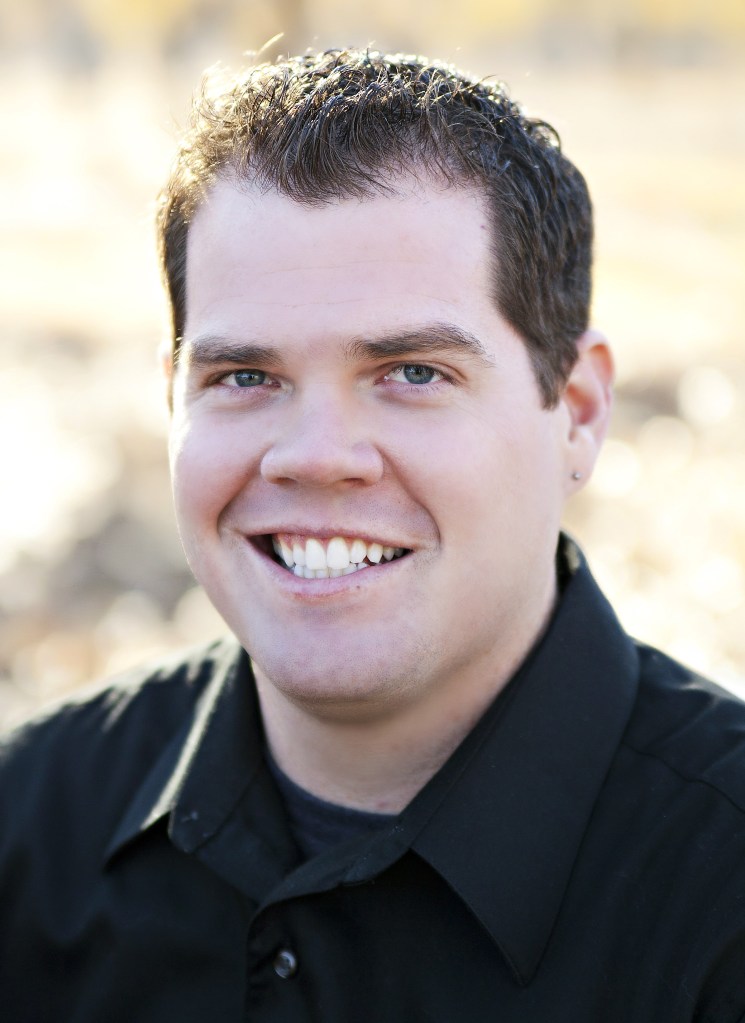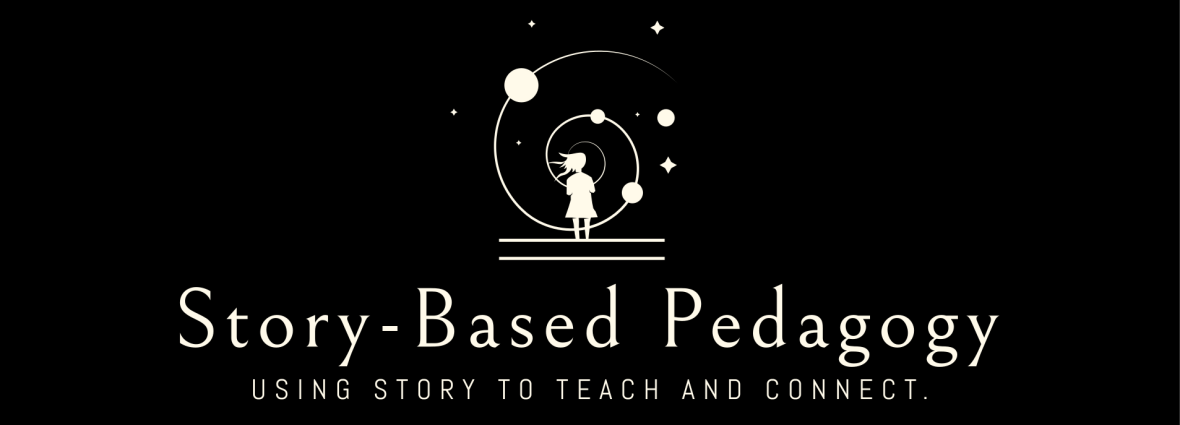Home
What is Story-Based Pedagogy?
The Story-Based Pedagogy Project began as a collaborative doctoral capstone project at Murray State University. In 2022, Finnian Burnett, Mary Leoson, and Jeffery Buckner-Rodas began their research into using storytelling to teach concepts in English classrooms. After graduating from the Doctor of Arts Project with a focus in English Pedagogy and Literature, “The Bards” will continue working together to expand the conversation about storytelling as a pedagogical approach.

Images: Canva Pro
Purpose of the Project
The Story-Based Pedagogy Project exists to encourage collaboration and conversation among teachers of all backgrounds, levels, and disciplines. Burnett, Leoson, and Buckner-Rodas each bring specific areas of expertise to this project, and while their research focuses on college-level English classrooms, they recognize that storytelling is valuable across academic institutions and disciplines. They are committed to sharing their knowledge and helping to train other instructors, but they also have so much to learn. As a result, this project is an ongoing conversation about how instructors utilize storytelling in their classrooms. They aim to uplift others’ voices and foster an environment in which authentic, honest, and sometimes difficult conversations arise.
How to Navigate this Website
The first four links on the navigation bar have been collectively developed and offer background information and resources on “The Power of Story,” Culturally-Responsive Teaching, Narrative Medicine, and Multimodal/Digital Composition.
These links include content that highlights our individual projects and areas of inquiry:
Process Drama & Empathy and The Monologue Project – Jeffery Buckner-Rodas explores the use of process drama in the classroom, how it can foster empathy, and how other instructors utilize this approach.
Rethinking the Writers Workshop – Mary Leoson explores the recent criticism of the traditional writers’ workshop in the creative writing classroom. She reviews some alternatives that have been proposed and adds to the ideas that could lead to more inclusivity by incorporating various forms of storytelling at multiple stages of the semester and by allowing for multimodal expression.
Storytelling & Identity – Finnian Burnett explores ways in which identity impacts the classroom and ways in which it has been neglected. They created digital interviews with people about their experiences in higher education with storytelling and identity. Finnian also shares information about critical storytelling for educators and teacher inquiry.
The podcast link offers an overview of our podcast, Teaching with Story, and links to the live episodes.
For an explanation of terminology used on this site, please scroll to the bottom of this page.
Who We Are

Finnian Burnett, DA, MA
Burnett teaches English composition, early British Literature, and creative writing. They hold an MA in Creative Writing and another in Digital Communications. Burnett also teaches creative writing workshops for adult learners on all aspects of the craft of writing, both for novel-writers, and short fiction writers. They have won or shortlisted with the Bridport Prize, Bath Flash Fiction, Blank Spaces Magazine, Reflex Press, and Pulp Literature. Burnett’s work has been nominated for Best of the Net and Best American Microfiction. Their recent release, “The Clothes Make the Man,” is an exploration of living the transgender experience in a fat body published by Ad Hoc Fiction. Burnett’s next flash fiction collection, The Price of Cookies, is forthcoming through Off Topic Publishing. Burnett lives in British Columbia, Canada with their wife and Lord Gordo, the cat.
Website: www.finnburnett.com / Twitter: @FinnianBurnett

Mary Leoson, DA, MFA, MA, MS
Leoson teaches English composition, creative writing, literature, film, and psychology at the college level. She holds an MFA in Fiction, an MA in English, an MS in Psychology and has specialized training in Digital Media & Composition, Narrative Medicine Facilitation, Positive Psychology, and Trauma-Informed Pedagogy. She is a Pushcart Nominee and Affiliate Member of the Horror Writers Association who specializes in literary horror fiction. Her writing has been featured in the The Lost Librarian’s Grave Anthology, Castabout’s Halloween Anthology, Free Spirit Historic Tales Anthology, Twisted Vine Literary Journal, Coffin Bell Journal, Untoward Magazine, Underwood Press’ Horror Journal Black Works, GNU Journal, The Gyara Journal, Genre: Urban Arts, Obra/Artifact, and on NPR’s “This I Believe” series. Her debut novel, The Butterfly Circle, will be released by Manta Press in July of 2023. She is also producer and co-host of the “Exhuming the Bones” podcast. She lives on the shores of Lake Erie with her husband and two very spoiled dogs.
Website: www.maryleoson.com / Twitter: @74marebear74 / Insta: @maryleoson

Jeffery Buckner-Rodas, DA, MFA
Buckner-Rodas teaches English, Spanish, and Drama at the secondary level. He holds an MFA in Creative Writing. Buckner-Rodas also holds single subject credentials in Music and Social Sciences. His passion lies in the arts, specifically theater, creative writing and vocal music, and works to incorporate various modes of learning in his learning units. He piloted the first Drama, Spanish and Creative Writing classes at Fernando R. Ledesma High School and seeks to implement cross-curricular learning units to improve student engagement and writing skills. Buckner-Rodas lives in Southern California with his husband and the two love to travel the world to learn new languages, cultural traditions, and discover new favorite recipes.
Website: theswashbuckner.com / Twitter: @jefferylbuckner

Image: Canva Pro
The Research Survey
In November of 2022, Burnett, Leoson, and Buckner-Rodas launched a survey aimed to understand how college-level instructors use storytelling, incorporate multimodality, and utilize strategies to achieve equity and inclusion in the English the classroom. The survey was open for two months and yielded 35 participant responses.
The survey questions included:
- What grade level do you primarily teach? (multiple choice: college- undergraduate, university – graduate, university – postgraduate)
- What subject areas do you teach? (multiple choice: English composition, creative writing, literature, theatre/drama, humanities, film, communication)
- To what extent are you familiar with strategies for using storytelling to teach concepts? (Likert scale: extremely, somewhat, average, not very familiar, not at all)
- In your opinion, to what degree does the use of story in the classroom create equity, foster empathy, or otherwise break down barriers between students? (Likert scale: extremely, somewhat, comparable to other strategies, not sure, storytelling is not relevant)
- In your own education, to what degree did you feel aspects of your identity were represented in course materials, literature, film/television, or other content used in the classroom? (Likert scale: always, often, average, rarely, never)
- To what extent do you require students to develop multimodal projects or use multimodal strategies in the classroom? (Likert scale: at least once every course, I have tried this several times, I have tried this once, I am interested in learning about this but have not tried it, never)
- How do you use storytelling in your classroom? This may include story-based pedagogy, retelling strategies (oral, written, or through an artform), or other creative approach to teach concepts. Please offer a brief description. (short or long answer)
- What strategies do you use to reach or include students of color, differently abled students, and students from other historically marginalized groups (i.e., LGBTQ+, neurodivergent students) in your course? Please offer a brief description. (short or long answer)
- If you use multimodal strategies or projects in your classroom, please describe these briefly. If they have a connection to creative writing, please indicate this. (short or long answer)
- If you teach creative writing, what is your opinion of the traditional writing workshop? If you do not teach creative writing, please put N/A. (short or long answer)
- Which theories, pedagogical frameworks, or strategies do you think are most effective for teaching creative writing? If you do not teach creative writing, please put N/A. (short or long answer)
- Is there anything else you would like to share regarding your approach to the classroom regarding storytelling, the teaching of creative writing, multimodality, or inclusive approaches that increase equity and community connection? (short or long answer)
The results of this survey are discussed in detail on our podcast, “Teaching With Story.” The answers are divided among the first four episodes, which focus on different areas. Episode one introduces the project and focuses on the broad use of storytelling in the classroom. Episode two focuses on identity and culturally responsive teaching. Episode three offers a discussion of multimodal composition and episode four focuses on narrative medicine and the rethinking the traditional writers’ workshop model.
Below are examples of answers to some of the quantitative questions. For a more in-depth discussion of these results, as well as a review of the qualitative answers respondents offered, please listen to podcast episodes one through four.
Image: Leoson, Burnett, & Buckner-Rodas
Image: Leoson, Burnett, & Buckner-Rodas
Image: Leoson, Burnett, & Buckner-Rodas
Glossary of Terms
Culturally Responsive Teaching – An approach based on the work of Geneva Gay that requires careful attention to the cultural elements of a community and incorporates materials and utilizes instructional strategies that help to foster an inclusive and engaging environment. See also the section on culturally responsive teaching.
Multimodal Composition – refers to projects in which students use multiple modes of expression when communicating ideas, including combinations of written language, spoken language, visuals, audio, tactile, gestural, and spatial forms (Kress, as cited by Cope & Kalantzis 176). See also the section on multimodal composition.
Narrative Medicine – An approach based on Rita Charon’s work; it integrates storytelling into medical practice and other helping professions to support listening and connection. It is now being used in education to support these same things. See also the section on narrative medicine.
Process Drama– a dramatic form of play not meant for rehearsal or to be presented on a stage, but to be used in a classroom setting to develop understanding and empathy. Also known as experiential drama, process drama is used to put students within a time and place with a specific task to take on or a question to answer through improvised movement and dialogue. See also the section on process drama and empathy.
Teacher Inquiry – an educator’s self-investigation into their own teaching methods, a way of examining their own biases, their mistakes, their successes, and the ways in which they can grow through self-reflection. See also the page on teacher inquiry (within the storytelling and identity section).
Writers’ Workshop – Within creative writing courses and conferences, and particularly at the graduate level, the traditional form of peer critique is the writers’ workshop. This model requires participants to share their written work first, then the writer is silenced and must listen to what all other participants have to say about the piece. See also the section on rethinking the writers’ workshop.
Work Cited
Cope, William and Mary Kalantzis. “Multiliteracies: New Literacies, New Learning.” Pedagogies,
2009, vol. 4, no. 3, pp. 164-195. doi:10.1080/1554480090307604
© 2023 by Mary Leoson, Finnian Burnett, & Jeffery Buckner-Rodas
